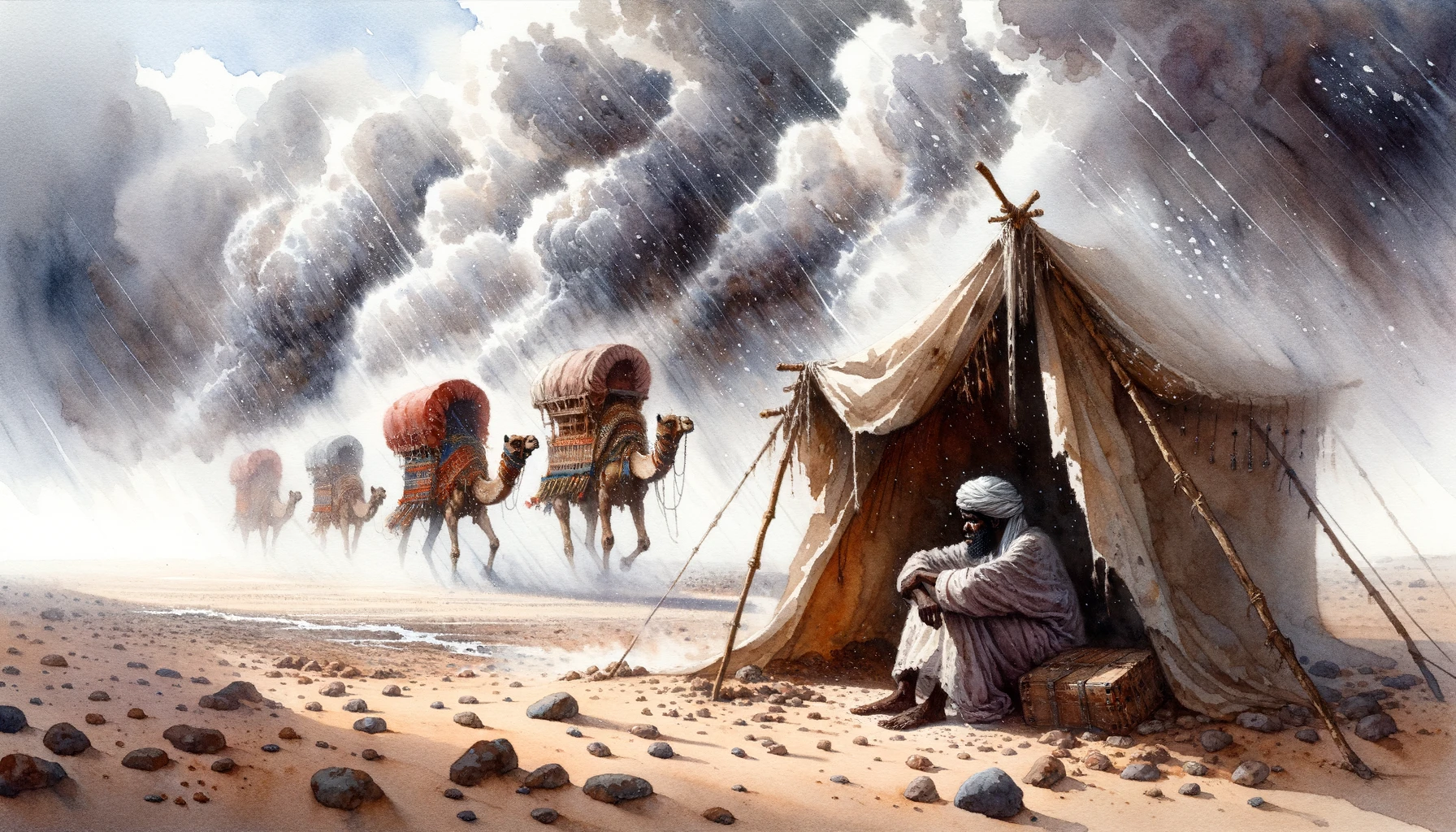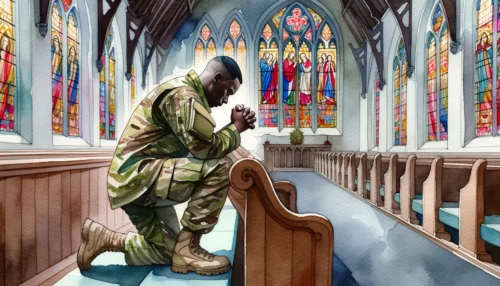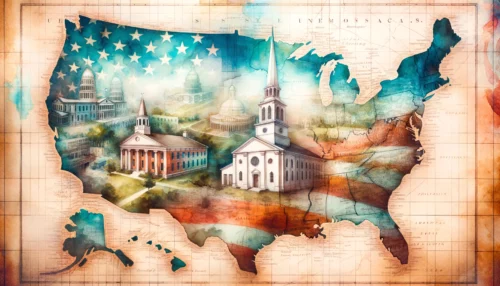The Bible is an ancient text, spanning numerous cultures, times, and contexts – making its interpretation a complex task. When approaching sensitive topics like slavery, it is paramount to consider these factors, understanding the Bible’s teachings in their entirety rather than isolated verses. This article will attempt to answer the question: “Does the Bible condone slavery?” from a comprehensive Biblical perspective.
Historical Context of Slavery in the Bible
When investigating any aspect of the Bible, we need to consider the historical and cultural context. Slavery, as discussed in the Bible, took many forms and had a different societal role compared to the brutal, race-based slavery that stained modern history.
In ancient Near East societies, including those in which the Bible was written, slavery was a social-economic system common across various cultures. This was especially true in the Old Testament times. Slavery could result from a number of circumstances, such as debt repayment, famine, or as a consequence of war. For instance, if an individual could not pay off a debt, they might choose to become a servant to their debtor until the obligation was fulfilled (Exodus 21:2-6).
Contrary to what we might assume from a modern perspective, slaves in the Old Testament had certain rights and protections. The Mosaic Law, for example, provided regulations to ensure fair treatment of slaves, with specific instructions against harsh treatment (Exodus 21:20). This doesn’t mean that every slave’s life was pleasant or fair, but it does highlight the distinct differences between ancient and modern concepts of slavery.
Moving into the New Testament era, we find the cultural context shifting to the Roman Empire. Slavery was still prevalent, but the relationship between master and slave could vary widely. Some slaves held significant responsibilities and could earn or buy their freedom, while others endured harsh conditions. Yet, regardless of their social status, the New Testament writers encouraged all believers to love and respect one another (Ephesians 6:9).
The Bible’s stance on slavery, then, cannot be properly understood without taking into account these historical and cultural contexts. It’s essential to recognize that the institution of slavery as depicted in the Bible is not synonymous with the race-based slavery of the last few centuries. The Bible provided regulations for an existing social structure, in a context where there were no social safety nets as we understand them today.
Slavery in Biblical times was a complex social-economic institution that differs significantly from more recent forms of slavery. The Old and New Testaments addressed it within their cultural contexts, providing guidelines to ensure fairness and humane treatment. This contextual understanding of slavery is key to interpreting Biblical passages on the subject.
Biblical Teachings on Human Dignity and Equality
Understanding the Bible’s teachings on human dignity and equality is crucial to our discussion about slavery. From the beginning, the Bible affirms the inherent worth of every individual. The book of Genesis, for instance, states that all humans are created in the image of God, setting a foundation for the intrinsic value and equality of all people (Genesis 1:27).
This idea is reiterated and built upon in the New Testament. In the eyes of God, there are no distinctions based on social status, wealth, or race. All are equally loved, valued, and offered salvation through Jesus Christ. An example is found in Galatians, where it is said that there is no longer Jew or Greek, slave or free, male or female, for all are one in Christ Jesus (Galatians 3:28).
The teachings of Jesus further amplify this point. He consistently advocated for love, mercy, and justice, urging his followers to love their neighbors as themselves (Matthew 22:39). This overarching commandment transcends all social and economic boundaries, including those between a master and a servant.
The early Christian community put these teachings into practice by blurring the lines of social hierarchy. In the church, slaves and masters worshiped side by side, both partaking in the Lord’s Supper, both equally part of the body of Christ (1 Corinthians 10:17). This was a radical departure from the societal norms of the time.
While the Bible acknowledges the societal reality of slavery in its historical context, it simultaneously presents a consistent message of human dignity, equality, and mutual respect. The Bible’s teachings consistently elevate the status of every individual, regardless of their societal position or circumstance.
The Bible’s teachings on human dignity and equality present a view of humanity that contradicts any form of dehumanizing or oppressive treatment, such as that associated with modern slavery. The scriptural principle of seeing every person as created in the image of God underpins the value and worth of each individual. This principle is consistently upheld throughout the Bible, even in the midst of societies where slavery was a common practice.
Interpreting Difficult Verses on Slavery
With a grasp of the historical context and the Bible’s teachings on human dignity and equality, we can now address some of the more challenging verses that seem to suggest the Bible condones slavery.
A notable example is found in the Old Testament laws. While it’s true that the Mosaic Law provides regulations about the treatment of slaves (Exodus 21:20-21), it’s crucial to remember that these were part of a broader legal system designed to govern a specific society at a specific time. These laws were not endorsing slavery but addressing its realities in a society where it was already present. They served to mitigate harsh treatment and ensure some measure of protection for slaves, a significant advancement compared to other ancient Near Eastern law codes.
In the New Testament, Paul’s letters often instruct slaves to obey their masters (Ephesians 6:5). At first glance, this may seem like an endorsement of the institution. However, these instructions were given within a societal context where slavery was a given reality. Paul’s primary concern was for followers of Christ to live out their faith in their current circumstances, promoting peace and mutual respect in all relationships. His teachings should not be interpreted as approval of the institution of slavery.
Paul also wrote letters that challenged the very heart of the slave-master relationship. In the letter to Philemon, Paul sent back a runaway slave named Onesimus not as a slave, but as a beloved brother in Christ. He urged Philemon to receive Onesimus as he would receive Paul himself (Philemon 1:15-17), undermining the traditional Roman conception of slavery.
Interpreting verses on slavery in the Bible is complex and requires careful consideration of context, culture, and the overarching narrative of scripture. The Bible does not shy away from addressing the realities of its historical context, including slavery. However, these references should not be misconstrued as a divine endorsement of the institution of slavery. Rather, they reflect the Bible’s commitment to guiding believers in every circumstance, always pointing towards principles of love, dignity, and mutual respect.
Navigating Complex Questions
We hope this exploration has provided clarity on the challenging question: “Does the Bible condone slavery?” As we’ve seen, the answer requires understanding historical context, cultural nuances, and the overarching themes of the Bible. With these insights, the apparent endorsement of slavery transforms into a picture of a faith that consistently upholds the dignity and worth of every individual, regardless of their societal status.
Consider these questions:
- How does understanding the historical and cultural context of the Bible impact your interpretation of difficult topics like slavery?
- How does the Bible’s affirmation of human dignity and equality influence your perspective on social and economic structures today?
- How can you apply the principles of love, respect, and equality taught in the Bible to your daily interactions and relationships?
In navigating difficult questions, may we be encouraged by the enduring message of the Bible – a message that champions love, justice, and equality. Even in the face of societal realities like slavery, the Bible’s teachings shine a light on the value of every human being, made in the image of God. And it is in this light that we can find guidance for living out these principles in our own time and place.














